Is the era of robotaxis over before it ever really started?
As the nascent self-driving ride service industry gears up to expand beyond San Francisco, some tech and transportation experts say it's time to pump the breaks

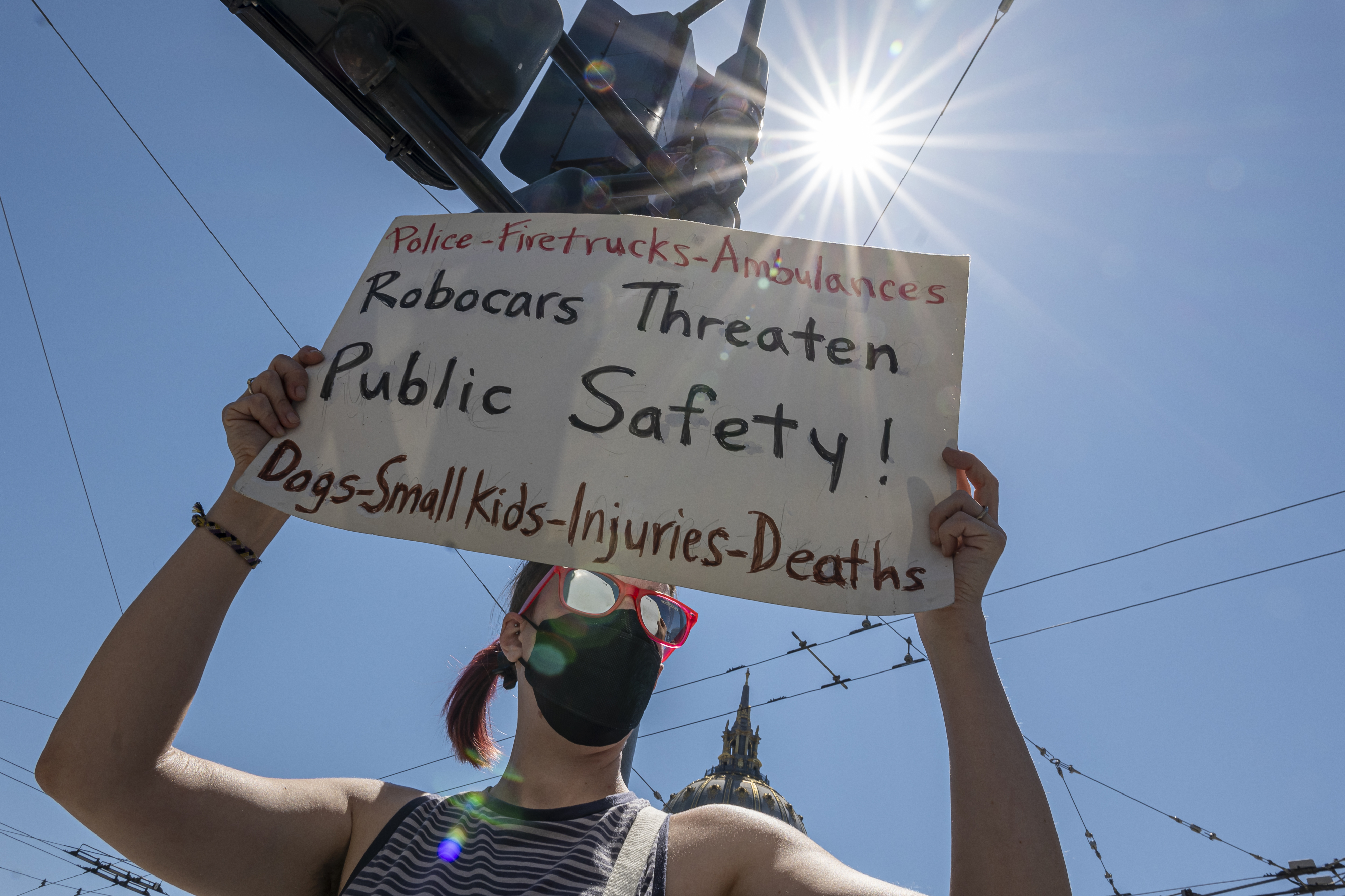
A free daily email with the biggest news stories of the day – and the best features from TheWeek.com
You are now subscribed
Your newsletter sign-up was successful
For as much as dyspeptic futurists grumble that "they promised us jet-packs" whenever it comes time to measure the utopian predictions of the past century with the decidedly more mundane present, the reality, as author William Gibson famously said, is that "the future is already here. It's just not evenly distributed yet." Consider the self-driving car: long a staple of retrofuturist forecasts, automated vehicles are slowly working their way from the pages of science fiction onto America's roadways — particularly in San Francisco, where a burgeoning driverless taxi network has become the "tip of the spear" for the self-driving auto industry, according to Professor Missy Cummings, director of George Mason University's Autonomy and Robotics Center, in The Atlantic.
As more cities prepare for an influx of driverless taxis, the Bay Area's case study has raised questions about safety, efficacy, and the need for robotic vehicles at large. Are the speed bumps in this robotaxi rollout enough to derail the nascent industry as a whole?
"Admit there are challenges and issues"
In early August, California's Public Utilities Commission approved a significant expansion for Cruise and Waymo, the state's two licensed robotaxi services, allowing them to operate 24-hour service across the whole of San Francisco, "with no limit on the number of robotaxis they can put on the roads," TechCrunch reported. The vote came "in spite of mounting opposition from residents and city agencies that have urged caution and a more incremental approach to expansion." Just one week later Cruise agreed to cut its fleet in half after one of its driverless vehicles "entered the intersection on a green light and was struck" by a fire truck which "appeared to be en route to an emergency scene," the company said in a statement on X, formerly known as Twitter.
The Week
Escape your echo chamber. Get the facts behind the news, plus analysis from multiple perspectives.

Sign up for The Week's Free Newsletters
From our morning news briefing to a weekly Good News Newsletter, get the best of The Week delivered directly to your inbox.
From our morning news briefing to a weekly Good News Newsletter, get the best of The Week delivered directly to your inbox.
"San Francisco exposed us to a lot of chaos," a Cruise representative told The Atlantic, praising it as "the exact kind of chaos that our technology needs." Included in that chaos are examples of driverless taxis getting stuck in wet concrete ("It thinks it's a road and it ain't because it ain't got a brain," bystander Paul Harvey told the San Francisco Gate) and killing a dog it had "correctly identified" but was "unable to avoid" according to KRON. But where the company sees a necessary form of "chaos," others in San Francisco are worried that the inherent unreliability of the still-developing technology could put lives at risk. The companies to "come out with their PR folks and take zero responsibility," SF Fire Chief Jeanine Nicholson told Bloomberg. "We need them to come to the table and admit there are challenges and issues, and work with us to solve them." SF Board of Supervisors President David Peskin agreed, telling The Mercury News the robotaxis are "not ready for prime time" and a "recipe for death." Some Bay Area citizens have been even more proactive: the anonymous "Safe Street Rebel" group regularly exploits a glitch in driverless car programming that incapacitates vehicles when a traffic cone is placed on its hood — "a protest against the city being used as a testing ground for this emerging technology," NPR reported.
"Maybe someday they will get benefits"
Regardless of the bumpy San Francisco rollout, the companies behind Cruise and Waymo are already expanding their footprint nationwide: Cruise, owned by General Motors, has 15 total cities in which it is "either mapping, testing or deploying" TechCrunch reported. Waymo, owned by Google parent company Alphabet, is already operating in Phoenix and Austin, while working on a product that can be "applied to any city, on any type of vehicle" for everything from "ride-hailing and long-haul trucking to local delivery and eventually personal car ownership," a spokesperson told The Atlantic.
Meanwhile, San Francisco city officials have officially petitioned the state to walk back the expansive permissions granted earlier this month, the San Francisco Chronicle reported. For the time being, though, "it's wrong to expose residents of the city to increased risk of harm because maybe someday they will get benefits," Carnegie Mellon University engineering professor Phil Koopman told the Atlantic. "We don't actually know when that day will be."
A free daily email with the biggest news stories of the day – and the best features from TheWeek.com
Rafi Schwartz has worked as a politics writer at The Week since 2022, where he covers elections, Congress and the White House. He was previously a contributing writer with Mic focusing largely on politics, a senior writer with Splinter News, a staff writer for Fusion's news lab, and the managing editor of Heeb Magazine, a Jewish life and culture publication. Rafi's work has appeared in Rolling Stone, GOOD and The Forward, among others.
-
 ‘Restaurateurs have become millionaires’
‘Restaurateurs have become millionaires’Instant Opinion Opinion, comment and editorials of the day
-
 Earth is rapidly approaching a ‘hothouse’ trajectory of warming
Earth is rapidly approaching a ‘hothouse’ trajectory of warmingThe explainer It may become impossible to fix
-
 Health insurance: Premiums soar as ACA subsidies end
Health insurance: Premiums soar as ACA subsidies endFeature 1.4 million people have dropped coverage
-
 The robot revolution
The robot revolutionFeature Advances in tech and AI are producing android machine workers. What will that mean for humans?
-
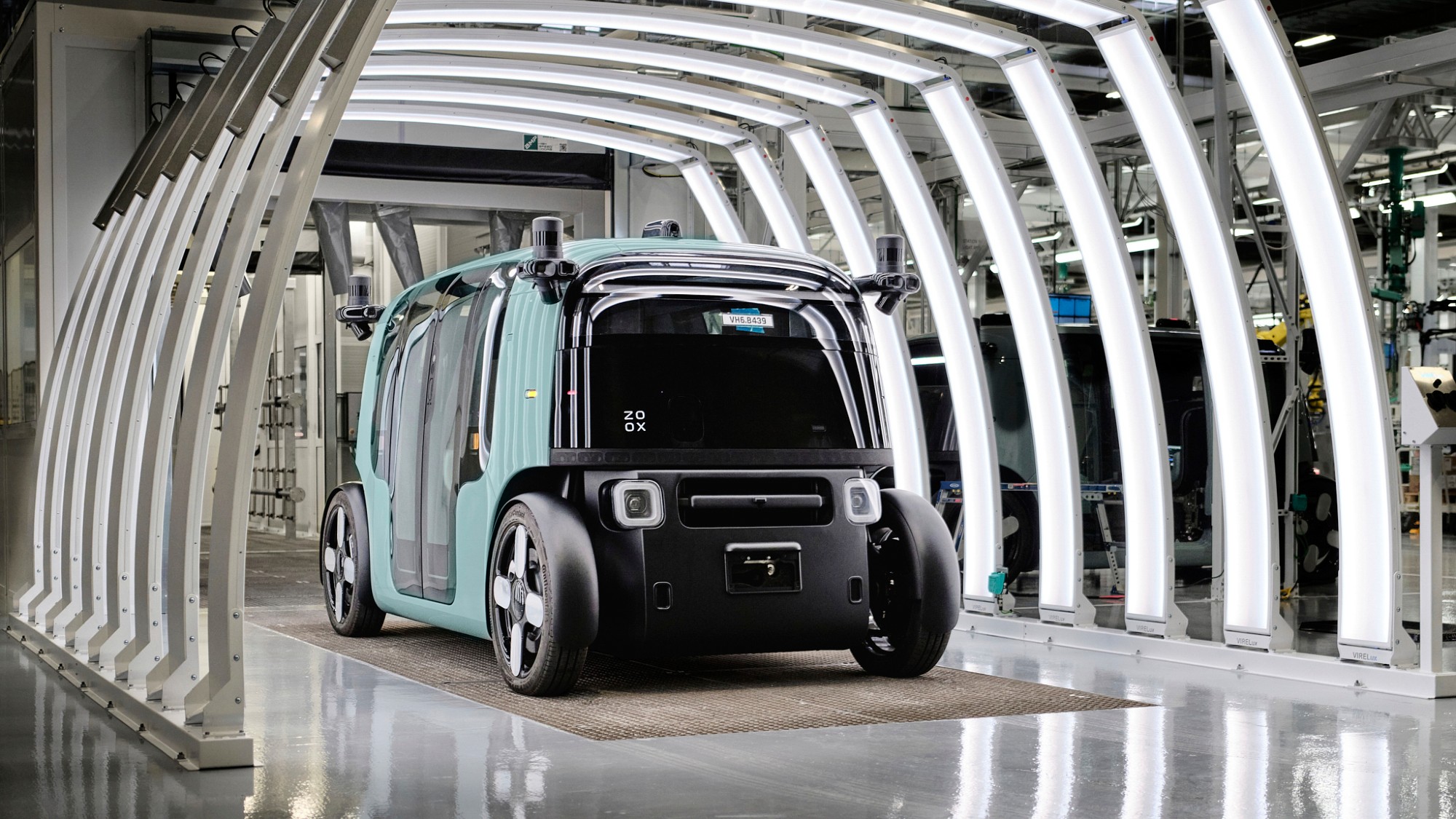 Amazon's robotaxi looks to be Waymo's biggest competitor
Amazon's robotaxi looks to be Waymo's biggest competitorIn the Spotlight The company recently opened a new robotaxi production plant in California
-
 Secret AI experiment on Reddit accused of ethical violations
Secret AI experiment on Reddit accused of ethical violationsIn the Spotlight Critics say the researchers flouted experimental ethics
-
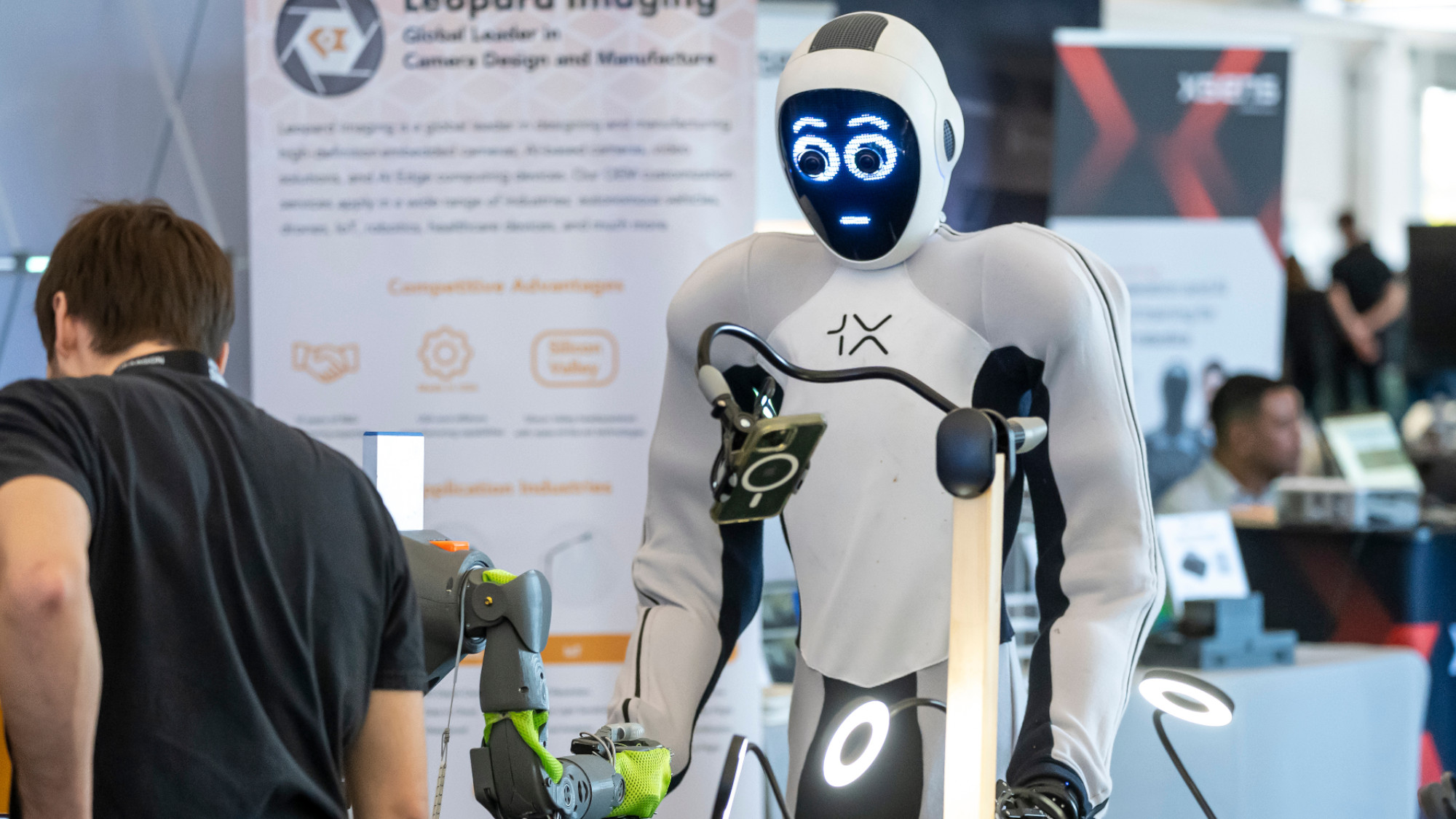 Space-age living: The race for robot servants
Space-age living: The race for robot servantsFeature Meta and Apple compete to bring humanoid robots to market
-
 Is the world ready for Tesla's new domestic robots?
Is the world ready for Tesla's new domestic robots?Talking Points The debut of Elon Musk's long-promised "Optimus" at a Tesla event last week has renewed debate over the role — and feasibility — of commercial automatons
-
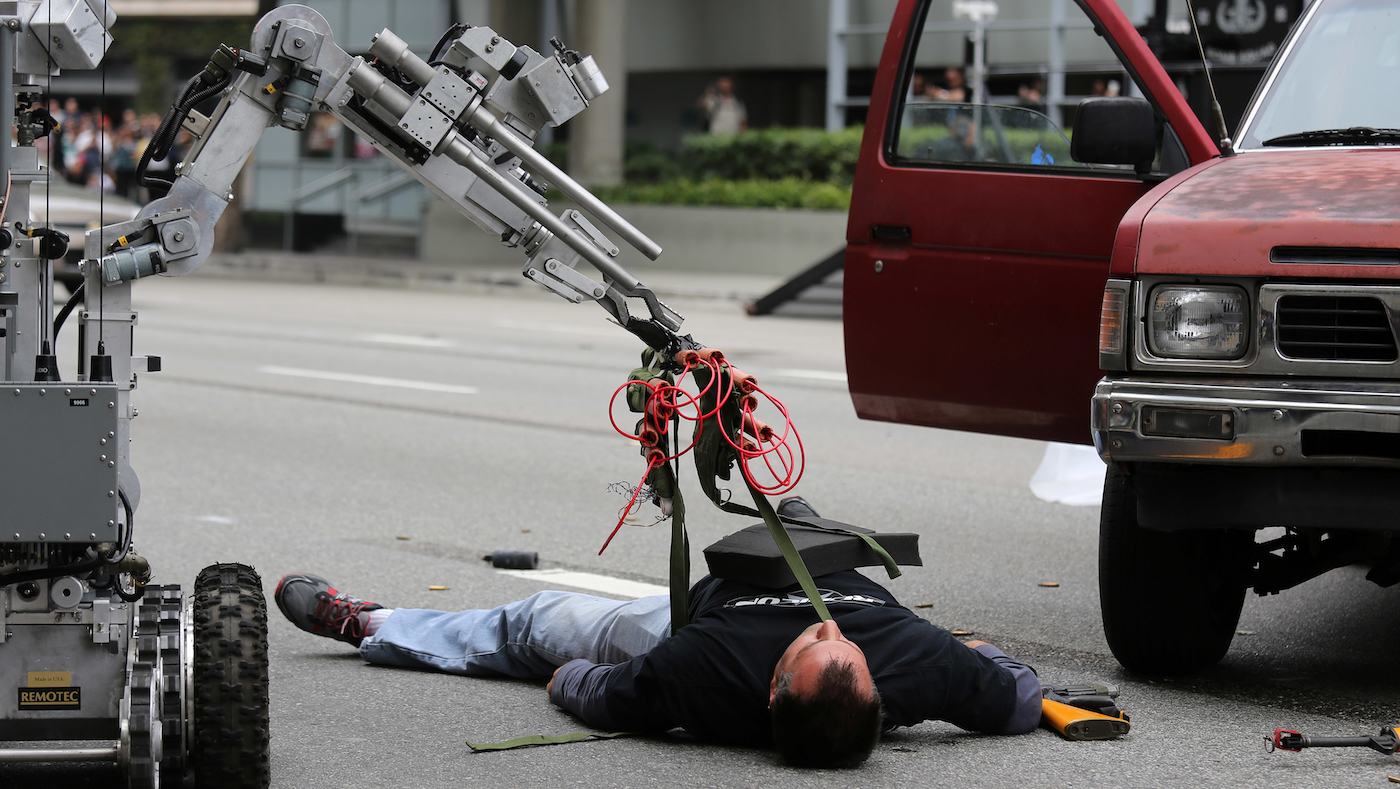 Are killer robots now legal in San Francisco?
Are killer robots now legal in San Francisco?feature Officials vote to allow police to use remote-controlled devices with lethal capability in ‘extraordinary circumstances’
-
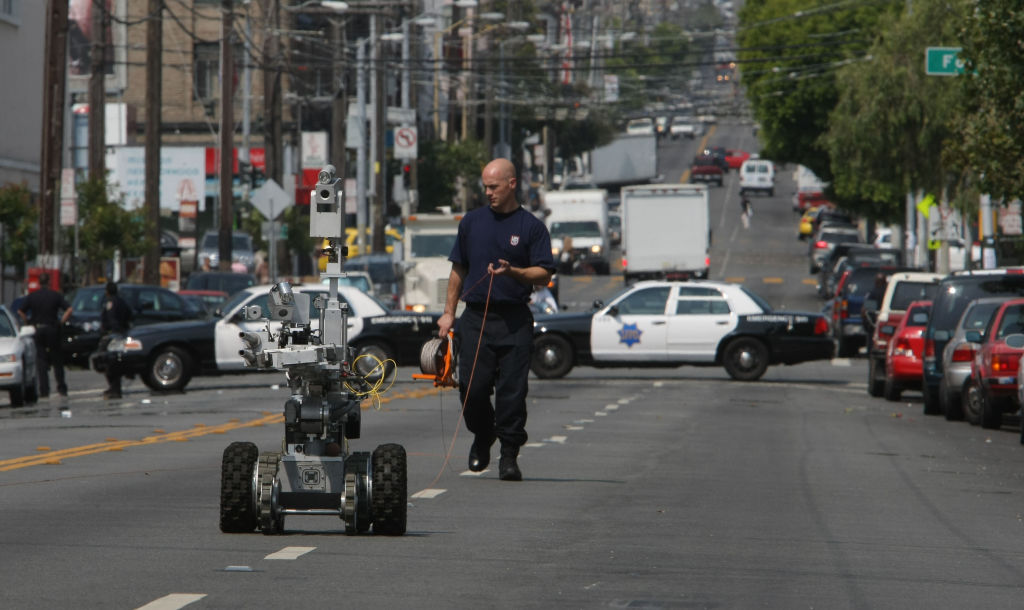 San Francisco approves police request to deploy lethal robots
San Francisco approves police request to deploy lethal robotsSpeed Read
-
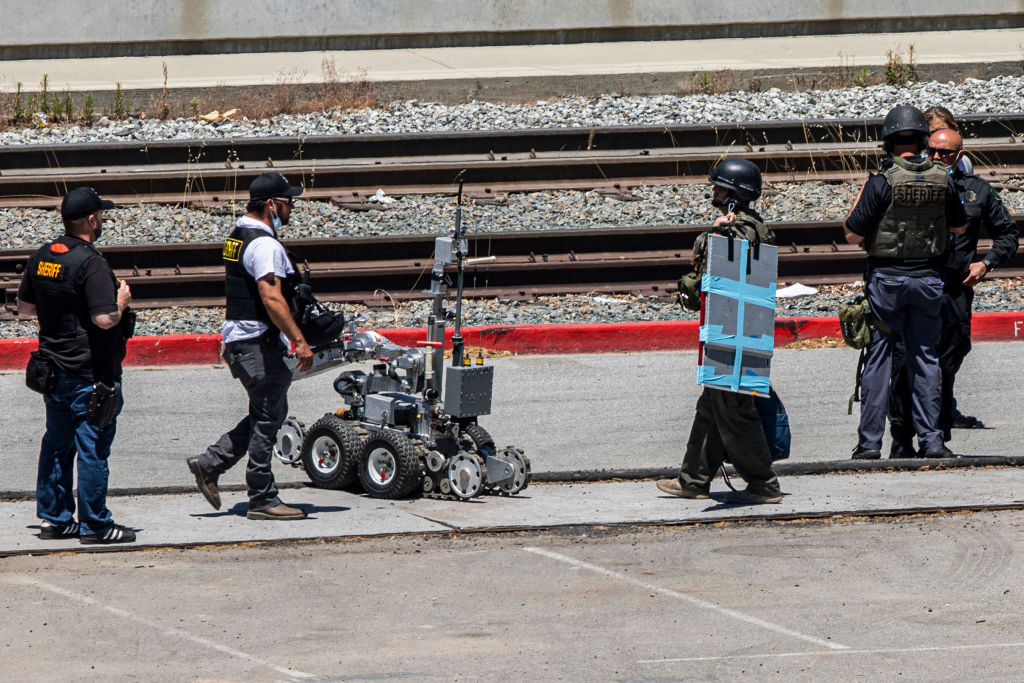 San Francisco police are controversially asking permission to use killer robots on civilians
San Francisco police are controversially asking permission to use killer robots on civiliansSpeed Read
